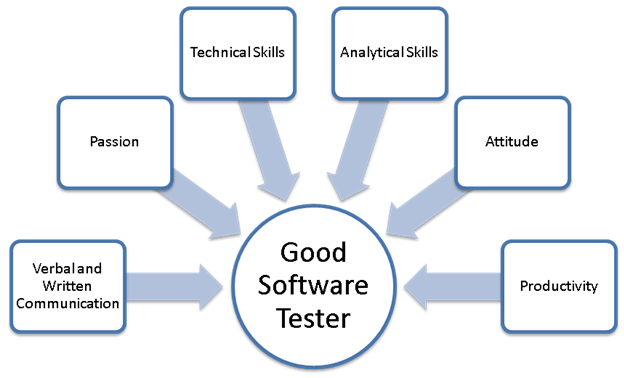Addressing Cybersecurity Concerns in B2B Transactions: Safeguarding WordPress Ecommerce Website and Virtual Training Tools

In the ever-evolving landscape of digital commerce, B2B transactions have become the backbone of numerous industries. As businesses increasingly rely on platforms like WordPress ecommerce websites and virtual training tools to conduct transactions and training sessions, ensuring robust cybersecurity measures is paramount. In this article, we delve into the importance of addressing cybersecurity concerns in B2B transactions, with a focus on safeguarding WordPress ecommerce website and virtual training tools.
Understanding the Cybersecurity Landscape
Cyber threats loom large in today’s interconnected world, posing significant risks to businesses engaging in online transactions. From data breaches to ransomware attacks, the consequences of cyber vulnerabilities can be severe, leading to financial losses and reputational damage.
Key Considerations for WordPress Ecommerce Websites
WordPress, with its user-friendly interface and customizable features, is a popular choice for setting up ecommerce websites. However, its widespread usage also makes it a target for cyber threats. To mitigate risks, businesses must prioritize security measures such as implementing SSL certificates, regular software updates, and robust password policies.
Strengthening Virtual Training Tools
Virtual training tools have revolutionized employee education and skill development, offering convenience and flexibility. Yet, they too are susceptible to cybersecurity threats. Organizations must ensure that their virtual training platforms are secure by implementing encryption protocols, access controls, and monitoring user activity to detect any suspicious behavior.
Importance of Data Encryption
One of the fundamental aspects of cybersecurity in B2B transactions is data encryption. Whether it’s customer information on an ecommerce website or sensitive training materials on a virtual platform, encrypting data ensures that it remains secure during transmission and storage, thwarting potential cyber attacks.
Regular Security Audits and Updates
Cyber threats are constantly evolving, making it imperative for businesses to conduct regular security audits and updates. This includes assessing vulnerabilities in WordPress plugins and themes, as well as patching any software vulnerabilities in virtual training tools to stay ahead of potential security breaches.
Training and Awareness
Human error remains one of the weakest links in cybersecurity. Educating employees about the importance of cybersecurity best practices and raising awareness about common threats can significantly reduce the risk of successful cyber attacks. Training programs should cover topics such as phishing awareness, password security, and device management protocols.
Two-Factor Authentication (2FA)
Implementing two-factor authentication adds an extra layer of security to B2B transactions. By requiring users to provide two forms of identification, such as a password and a unique code sent to their mobile device, businesses can significantly reduce the risk of unauthorized access to their WordPress ecommerce websites and virtual training tools.
Partnering with Trusted Providers
When selecting vendors for WordPress plugins, ecommerce platforms, or virtual training tools, businesses should prioritize partnering with trusted providers with a proven track record in cybersecurity. Choosing reputable vendors reduces the likelihood of integrating insecure software into the business ecosystem, thereby minimizing potential vulnerabilities.
Incident Response Planning
Despite best efforts, cybersecurity incidents may still occur. Having a well-defined incident response plan in place is essential for minimizing the impact of a breach and restoring normal operations swiftly. This plan should outline procedures for identifying and containing breaches, notifying affected parties, and restoring systems from backups.
Continuous Monitoring and Adaptation
Cybersecurity is not a one-time endeavor but an ongoing process. Businesses must continuously monitor their WordPress ecommerce websites and virtual training tools for suspicious activity and adapt their security measures in response to emerging threats. This proactive approach ensures that they stay resilient in the face of evolving cyber risks.
Secure Payment Gateways
For businesses operating WordPress ecommerce websites, secure payment gateways are critical for protecting customer financial information. Partnering with reputable payment processors that comply with industry standards such as PCI DSS (Payment Card Industry Data Security Standard) helps ensure the secure handling of payment data.
Secure APIs for Virtual Training Tools
Virtual training tools often rely on APIs (Application Programming Interfaces) to integrate with other platforms and services. Ensuring these APIs are secure is crucial for protecting data and preventing unauthorized access. Businesses should validate API calls, use strong authentication methods, and monitor API activity for signs of compromise.
Secure Data Backups
Data backups are essential for recovery in the event of a cyber attack or data loss. Businesses should implement regular backup schedules for WordPress ecommerce websites and virtual training tools, ensuring that data is encrypted and stored in a secure location. Regularly testing backups for integrity is also recommended to guarantee a smooth recovery process.
Secure Hosting Environments
Choosing a secure hosting environment for WordPress ecommerce websites and virtual training tools is a key factor in safeguarding data and infrastructure. Look for hosting providers that offer advanced security features such as DDoS (Distributed Denial of Service) protection, firewall configurations, and monitoring services.
Compliance with Regulations
Compliance with relevant cybersecurity regulations and standards, such as the General Data Protection Regulation (GDPR) or the Health Insurance Portability and Accountability Act (HIPAA), is essential for businesses handling sensitive customer data. Adhering to these regulations not only ensures legal compliance but also enhances customer trust and confidence.
Secure Communication Channels
When using virtual training tools, businesses must ensure secure communication channels. Encrypting video and audio streams, as well as implementing end-to-end encryption for messaging features, protects training sessions from unauthorized interception and maintains confidentiality.
Secure User Management
Proper user management is critical for both WordPress ecommerce websites and virtual training tools. Businesses should establish clear roles and permissions for users, granting access only to necessary functions and data. This reduces the risk of unauthorized access and helps prevent data leaks.
Threat Detection and Response Tools
Deploying advanced threat detection and response tools can significantly enhance cybersecurity for businesses. These tools monitor network traffic and system activity in real-time, identifying potential threats and enabling rapid response to mitigate risks.
Secure Code Practices
Adhering to secure coding practices when developing or customizing WordPress themes, plugins, and virtual training tools is essential for minimizing vulnerabilities. Secure coding includes practices such as input validation, sanitization, and employing safe libraries and dependencies.
Fostering a Culture of Cybersecurity
Building a culture of cybersecurity within the organization is key to long-term success. This includes promoting open communication about potential threats and best practices, encouraging employees to report suspicious activity, and rewarding proactive security measures.
By implementing these measures and maintaining a proactive approach to cybersecurity, businesses can protect their WordPress ecommerce websites and virtual training tools from cyber threats, safeguarding both their operations and the trust of their customers. Prioritizing cybersecurity in B2B transactions is not just a best practice; it’s an essential component of modern business strategy.
Conclusion
Safeguarding B2B transactions conducted through WordPress ecommerce websites and virtual training tools requires a multi-faceted approach to cybersecurity. By understanding the threat landscape, implementing robust security measures, and fostering a culture of awareness and vigilance, businesses can mitigate risks and instill trust in their digital transactions.




